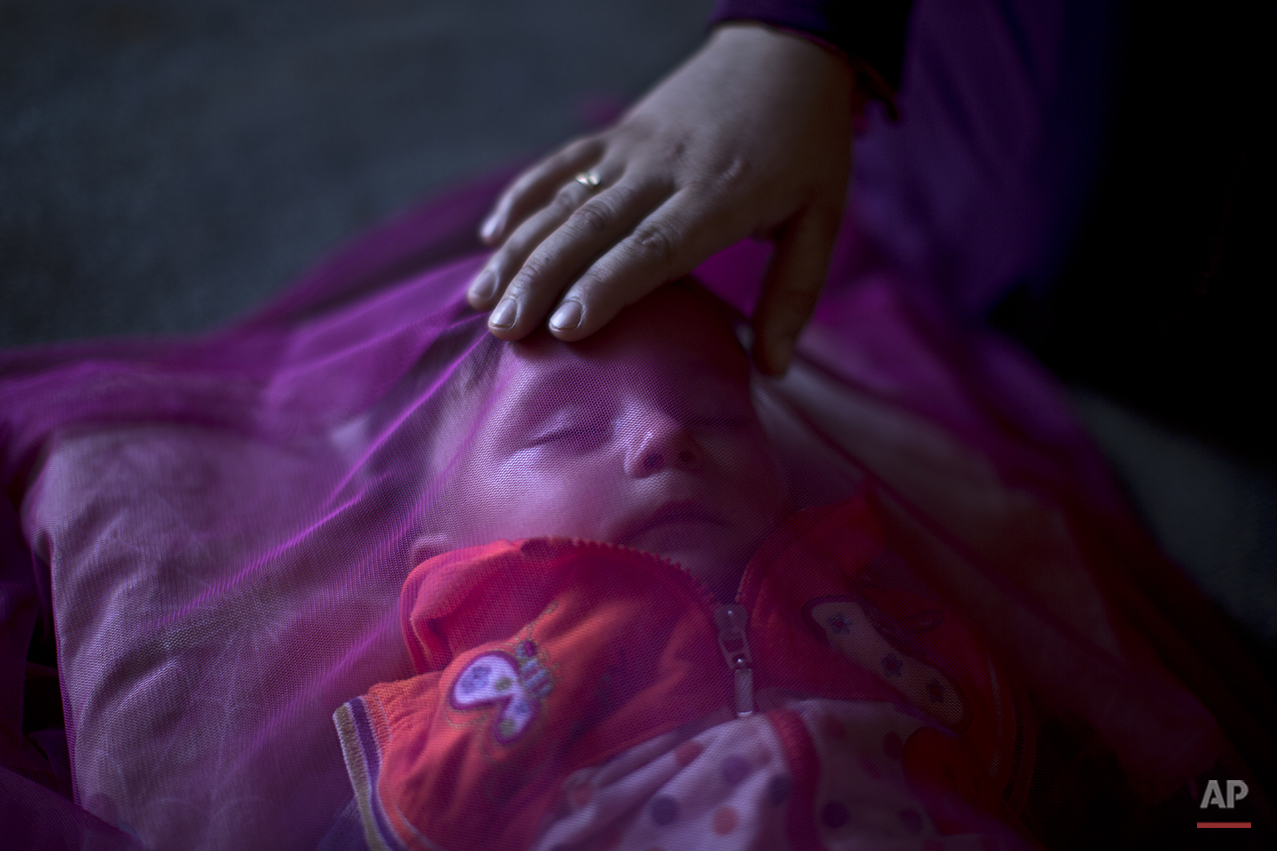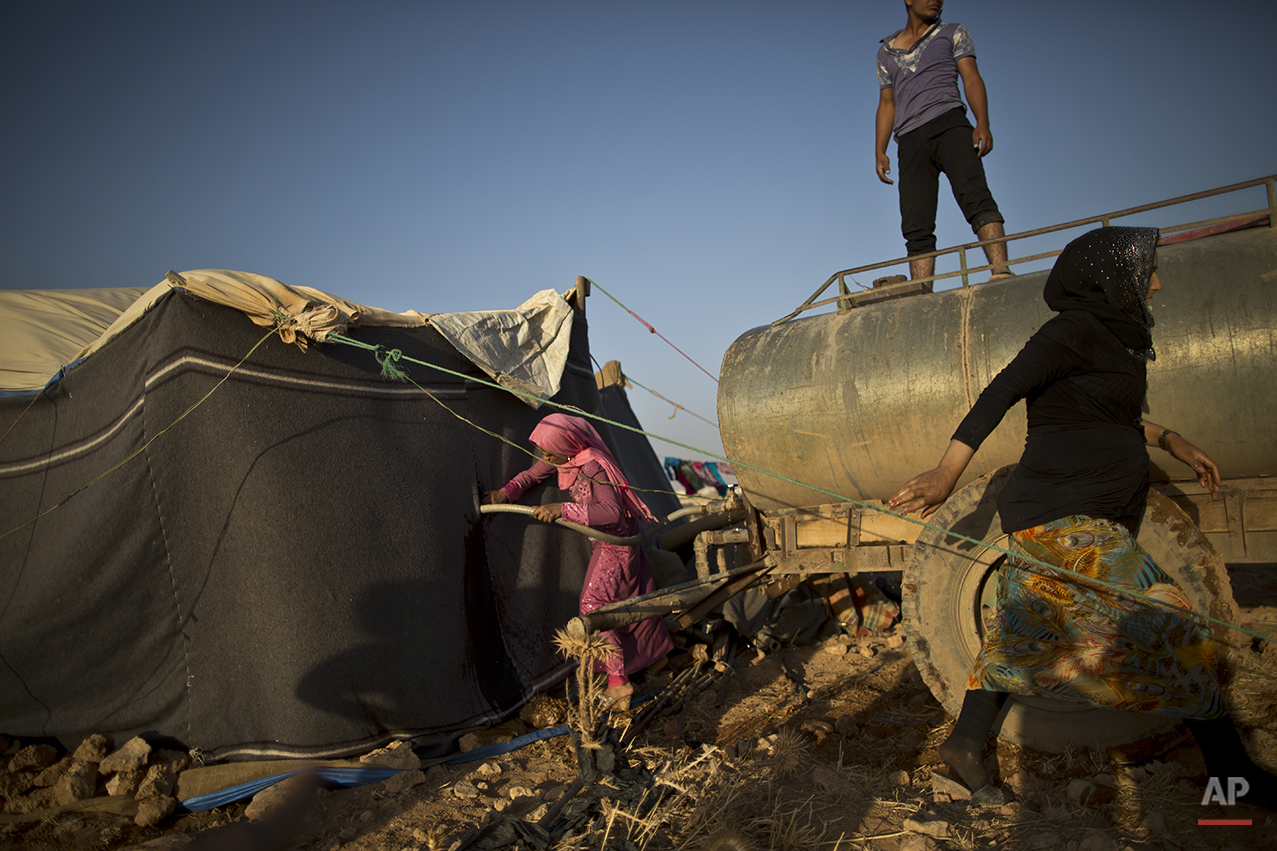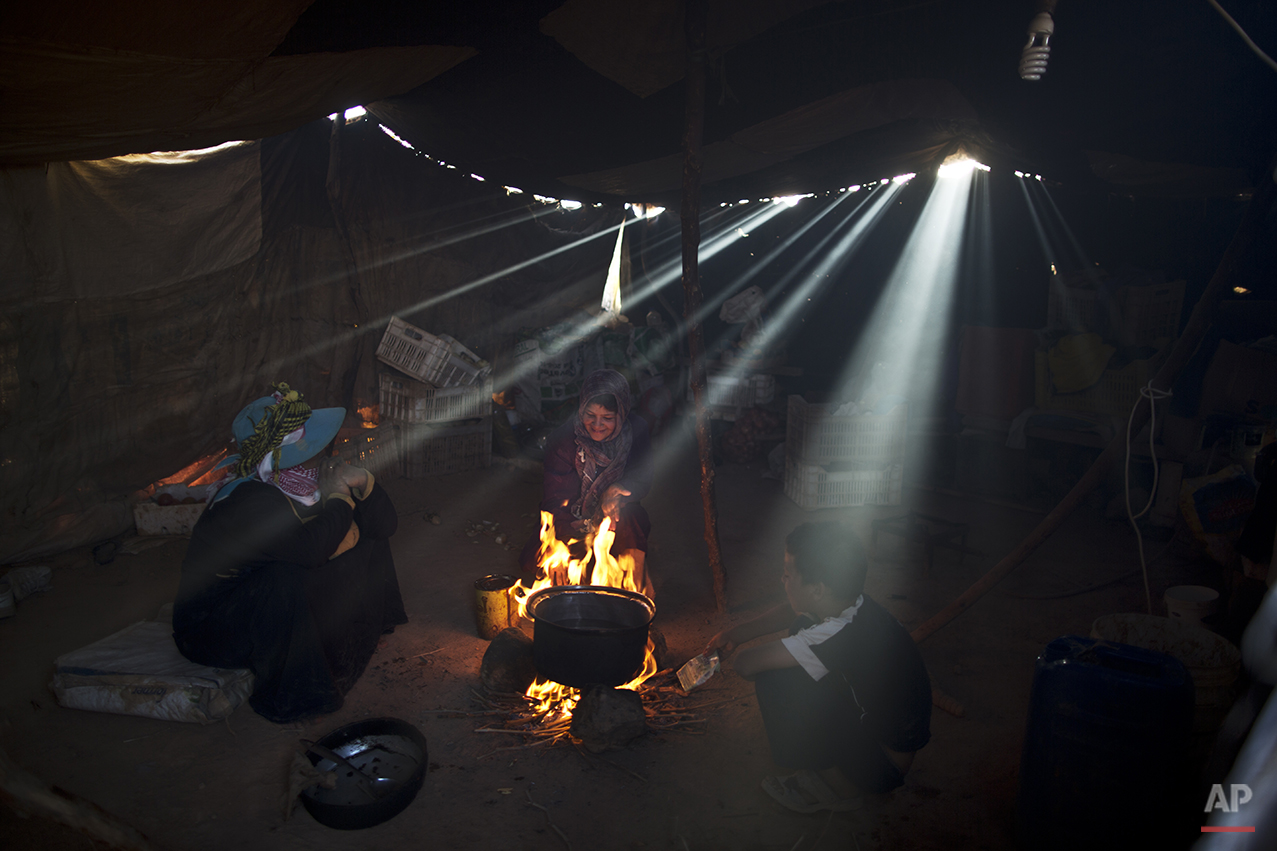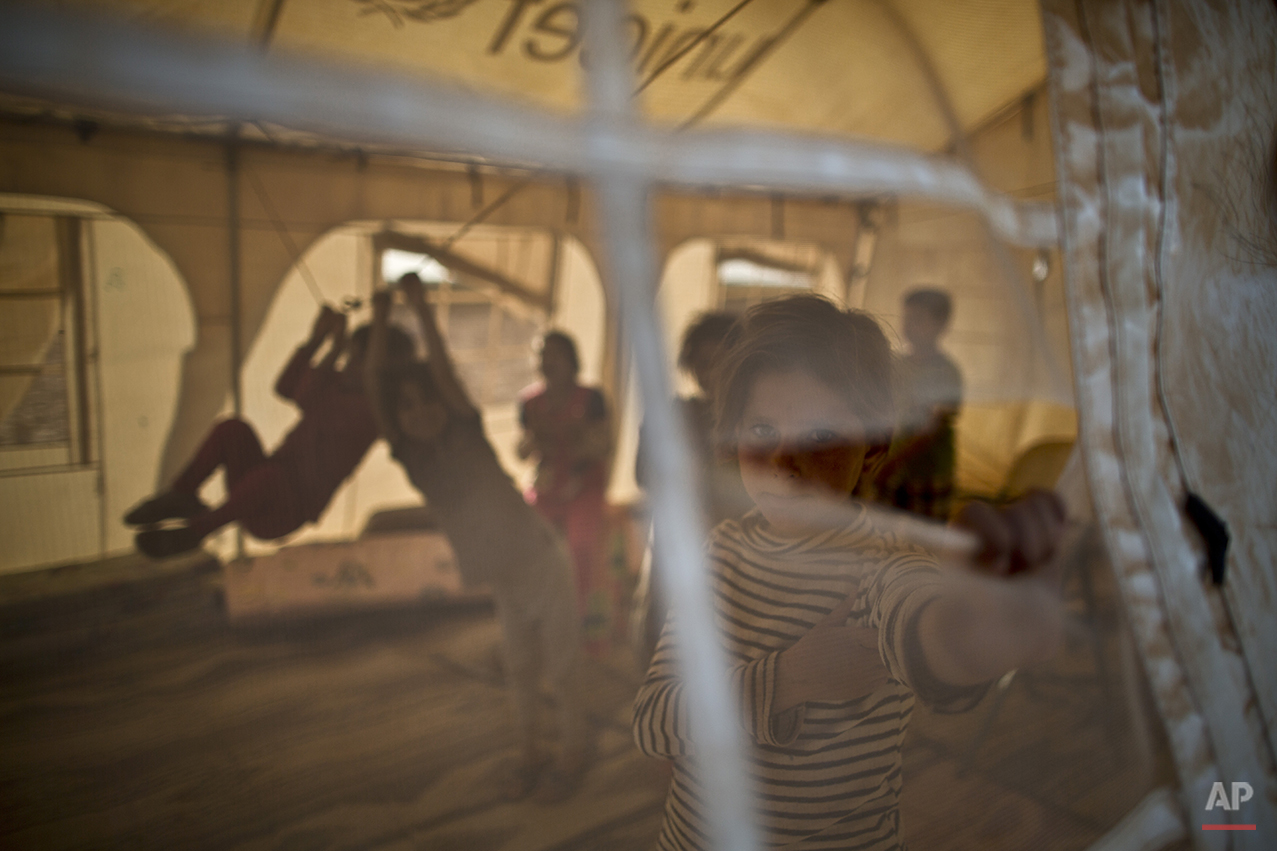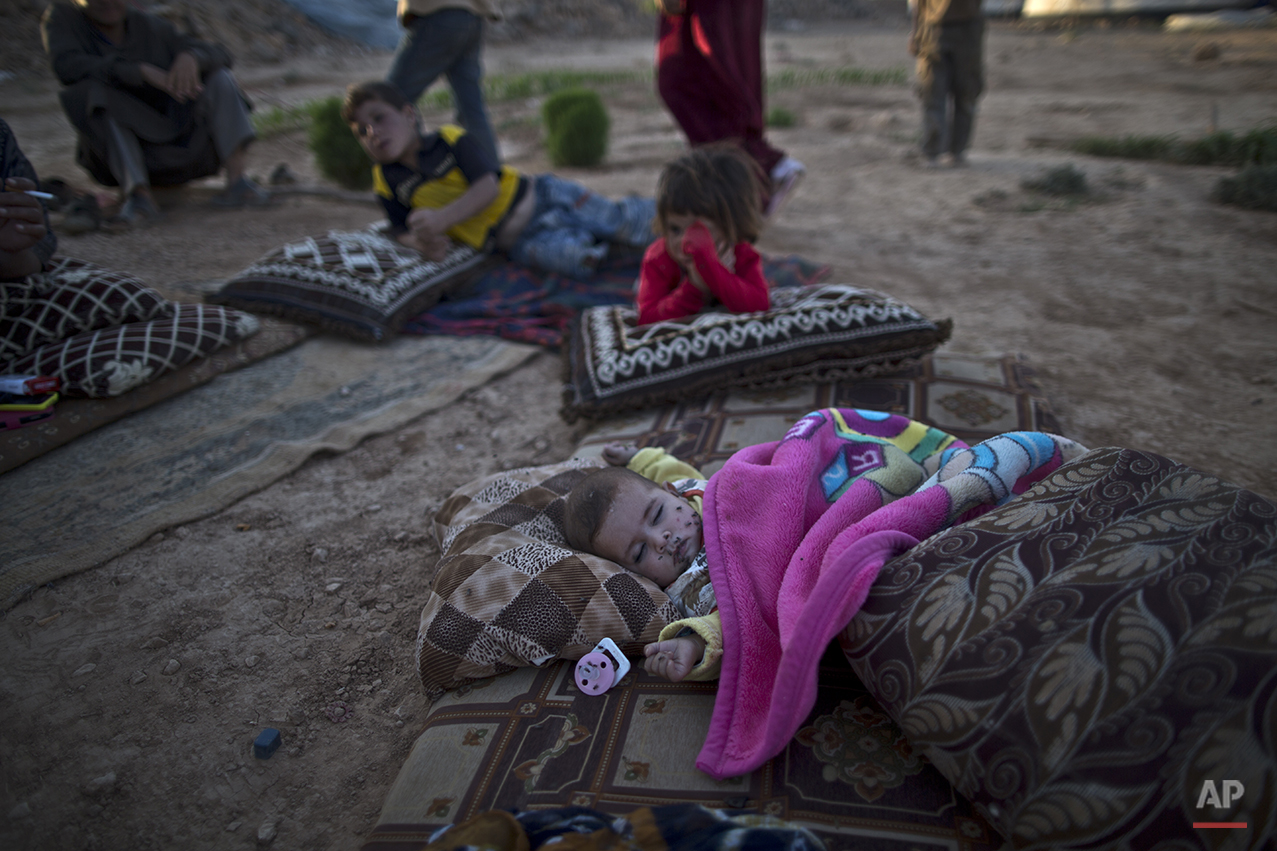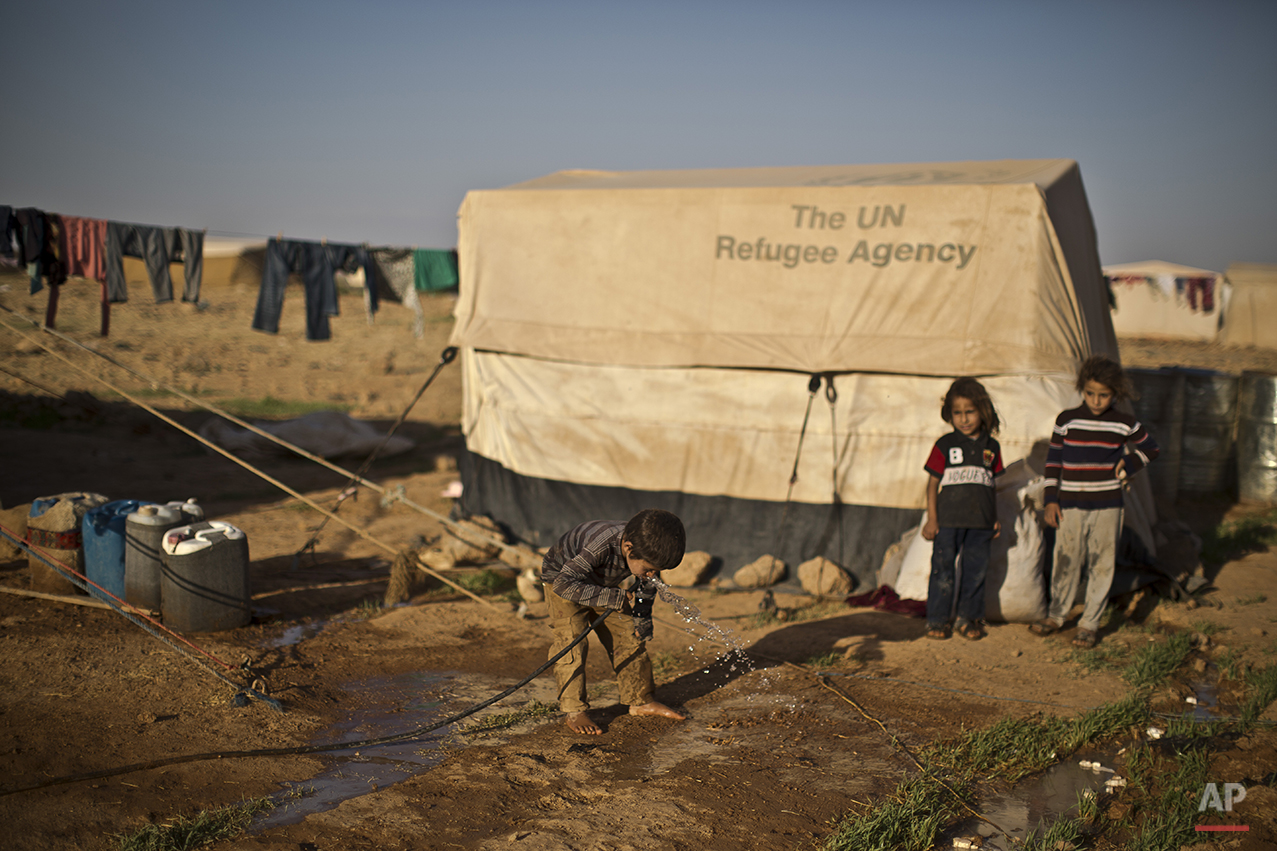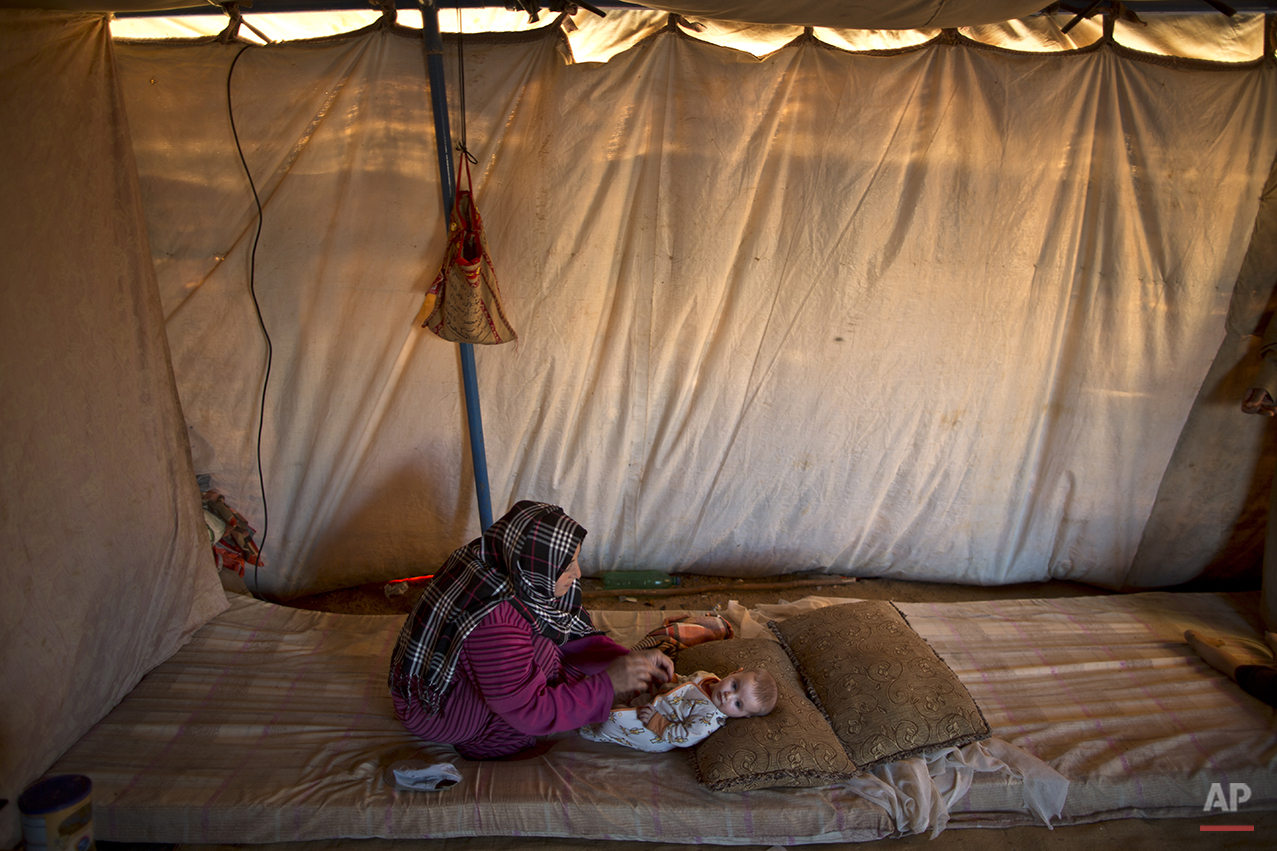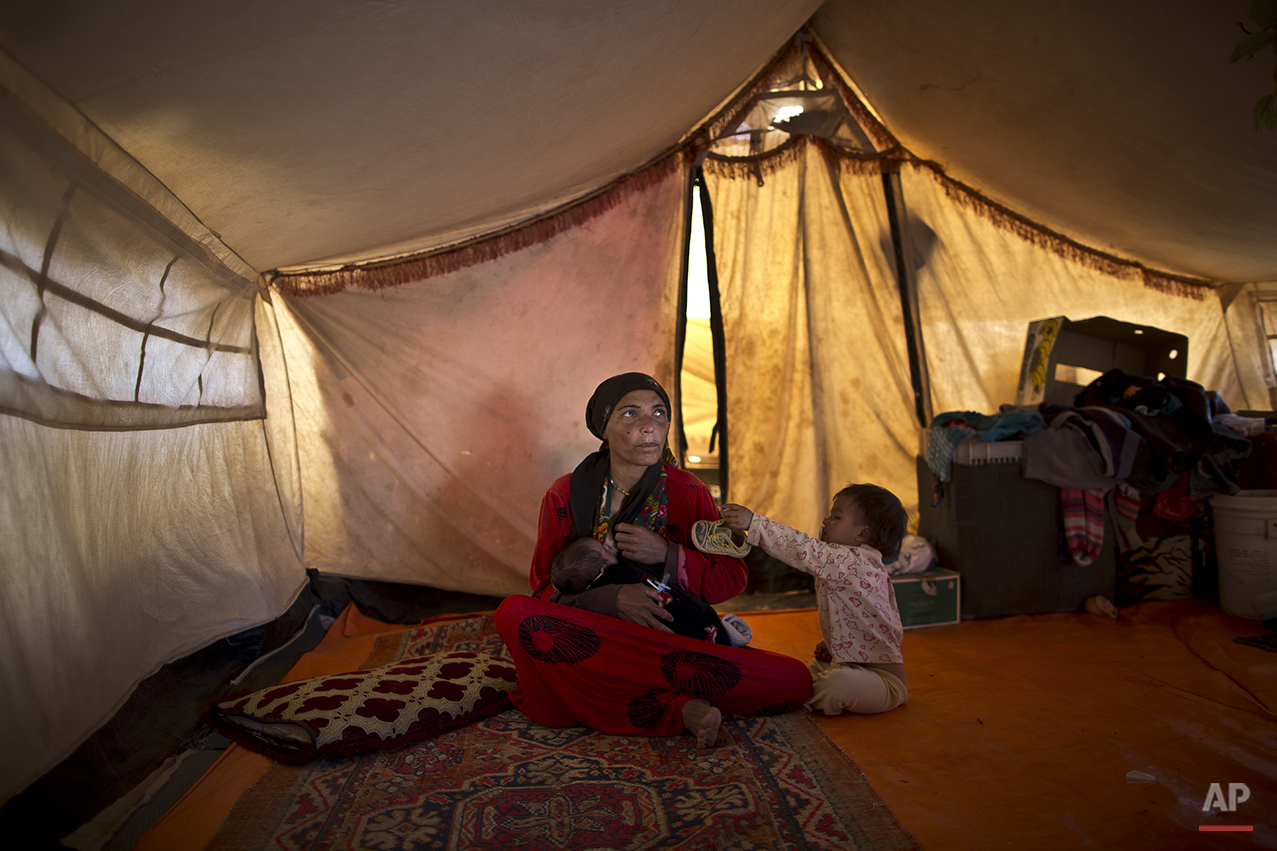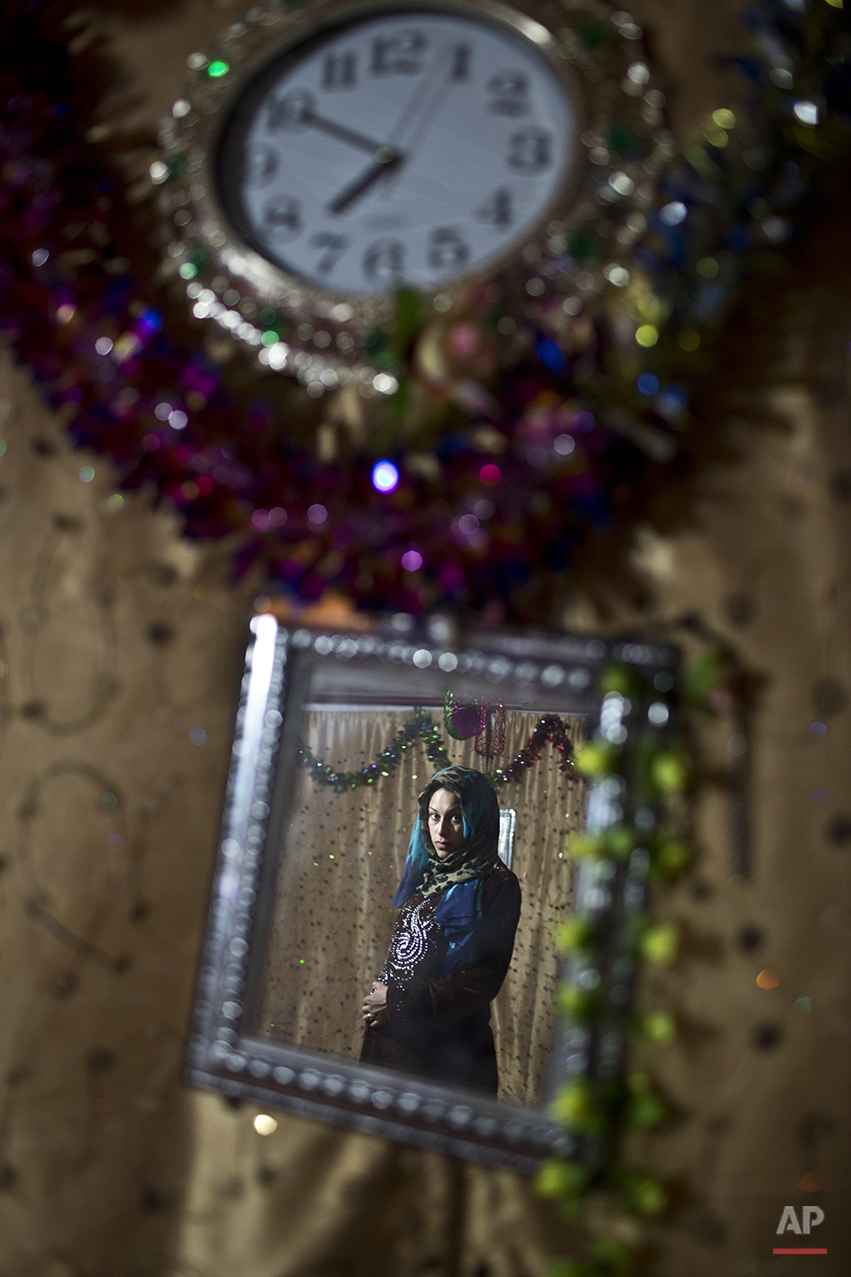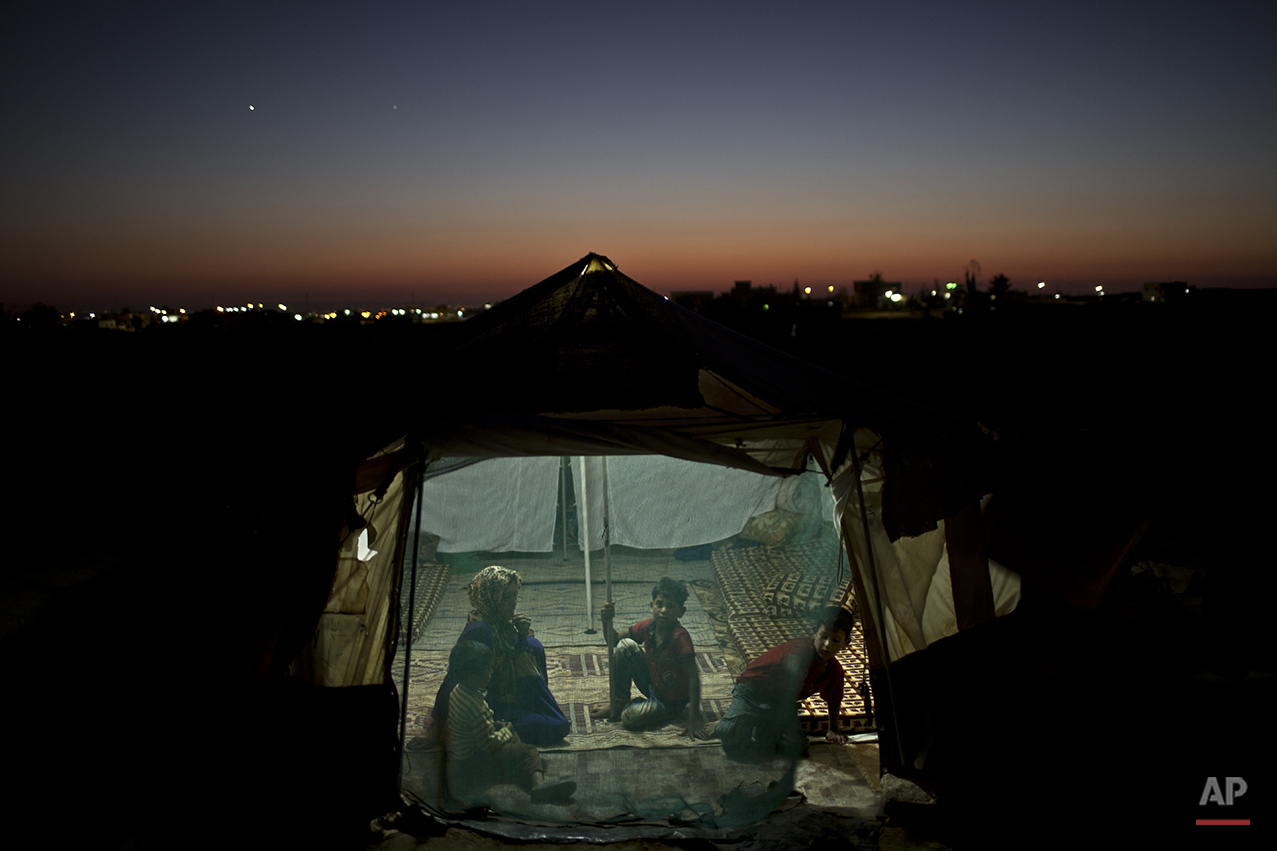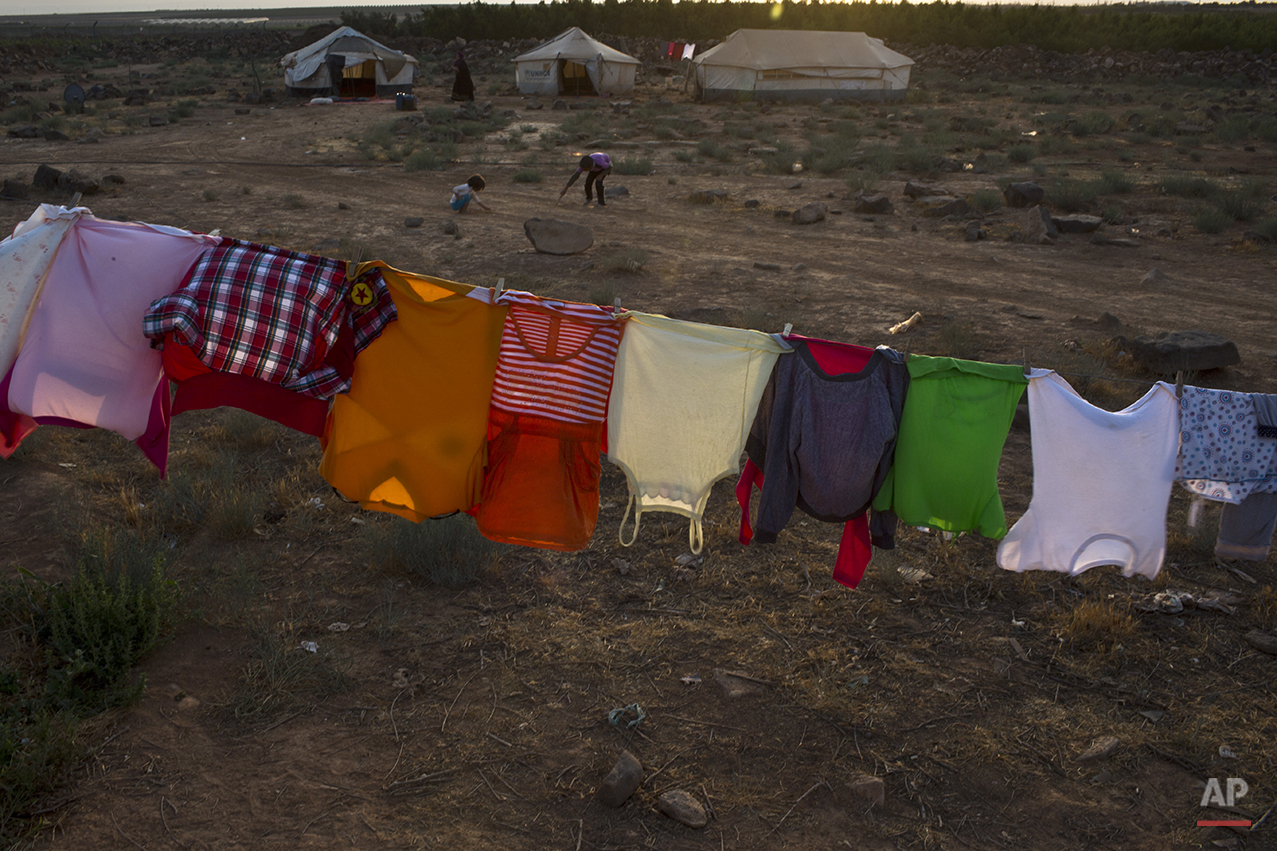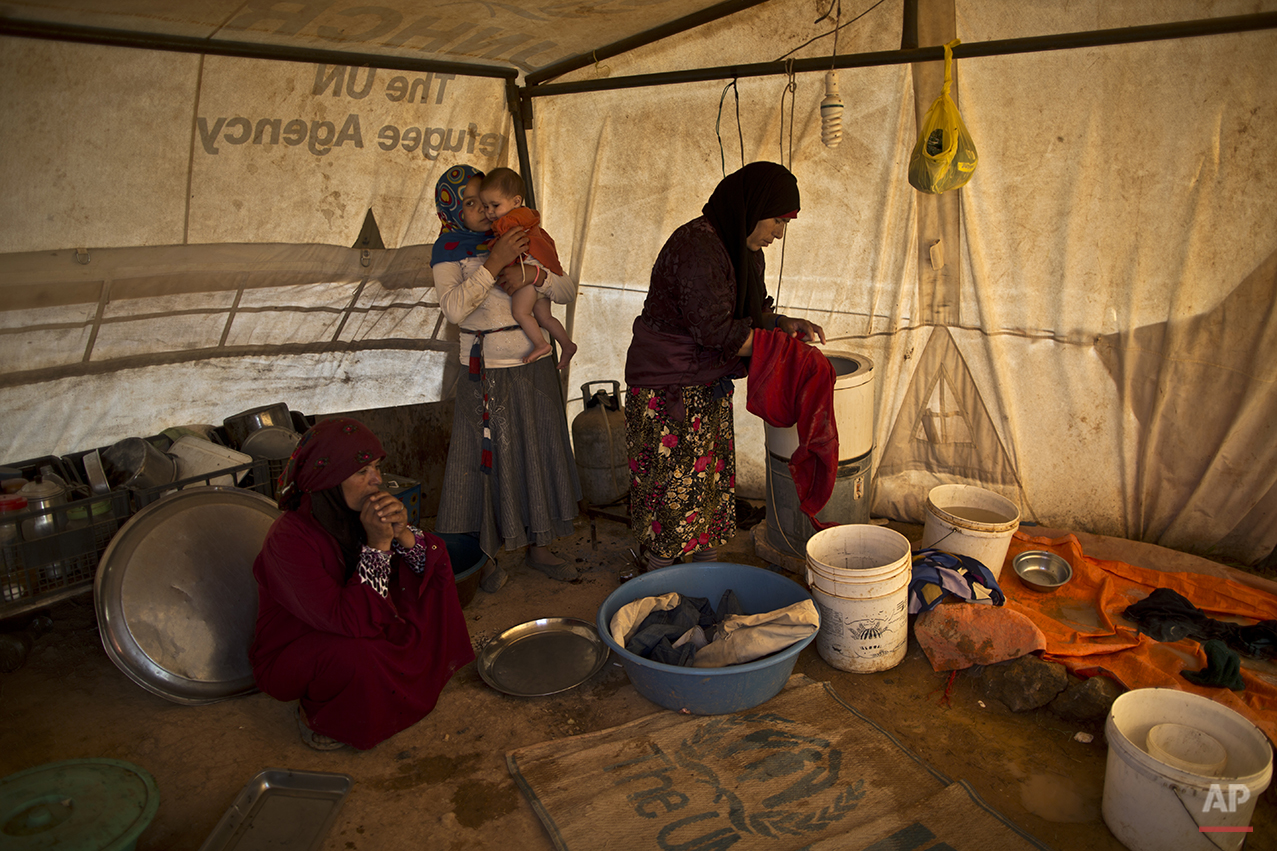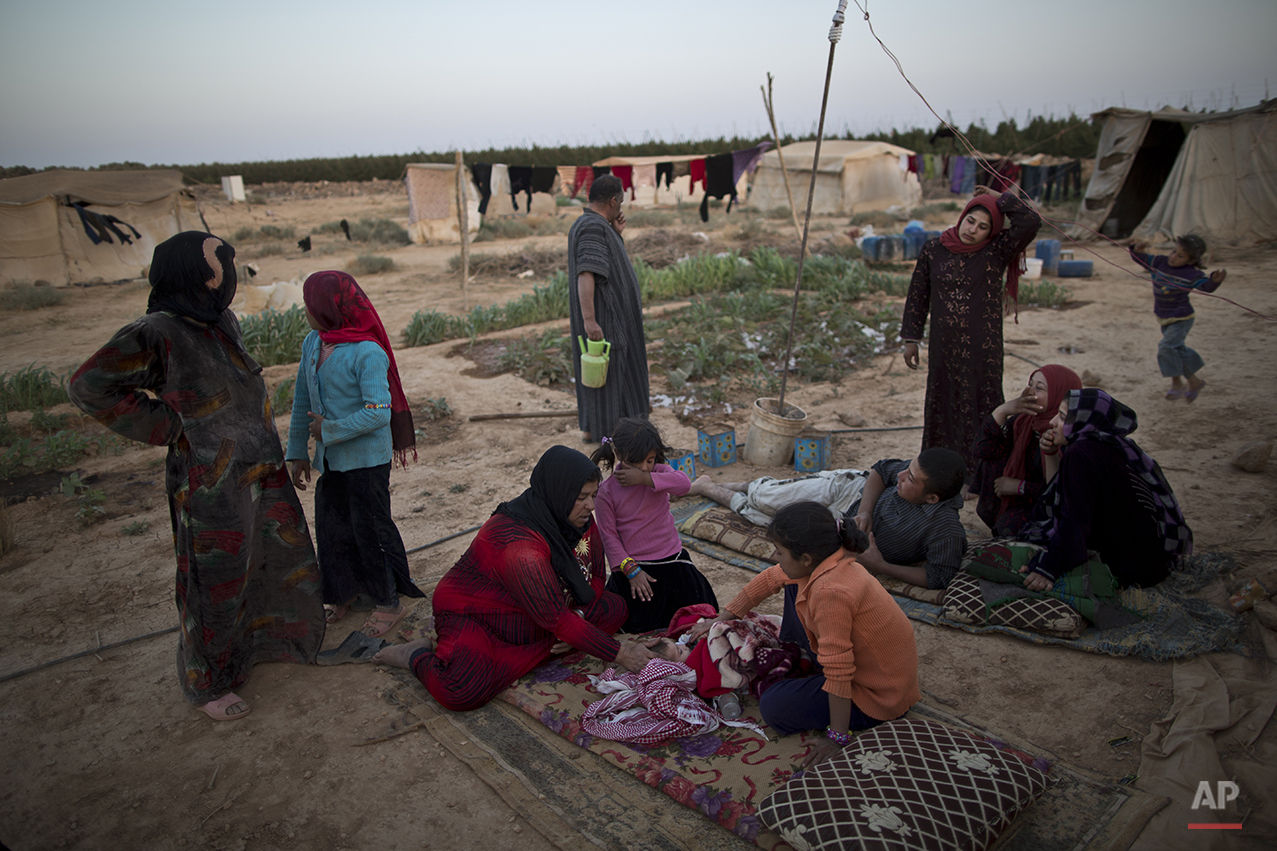Youngest refugees bear brunt of Syrian war woes

Gathered on the desert floor, the Askar family chants prayers for their 1-year-old daughter Jawahir, who died of malnutrition and is buried beneath the sands of their informal refugee camp far from their Syrian hometown.
"She was born in a camp and buried near the camp," her father Mohammed Askar recounts, still in anguish over her Feb. 24 death. "I wish the circumstances were different and I could have saved my daughter, but we are poor and powerless and we have only God with us."
Of the 4 million refugees who fled Syria's grinding civil war, it is the conflict's youngest exiles, like Jawahir, who often bear the brunt of its woes.
More than 10,000 children have died in the four-year conflict, while over 2.8 million in and out of the country don't go to school, according to the U.N. children's agency, UNICEF. Many suffer emotional problems from their experiences, while others get pressed into working to support their families, who struggle to have enough to eat.
Aid agencies have asked for $4.5 billion for 2015 to help refugees, but have been forced to slash support programs because of large funding gaps, which had a devastating effect on the amount of food aid coming.
"Today, parents have to make decisions that no parent around the globe should be making," says Joelle Eid, spokeswoman for the U.N.'s World Food Program in Jordan's capital, Amman. "They are forced to skip meals. They are accumulating a lot of debt. They are moving their children from school and even sending their children to work."
The WFP says it needs $139 million to continue helping Syrian refugees in the Mideast through September. But even with the aid now available, some don't receive it as they haven't registered with the U.N. or live in informal refugee camps, like those in Mafraq along Jordan's northern border with Syria.
Most of those in Mafraq choose to live here to be able to work at nearby farms, chaffing at the restrictions put on them in formal, U.N.-administered refugee camps. But even those salaries are not enough to support them.
"My son is too weak; my body doesn't produce milk (and) ... we can't afford buying milk," says Kutana al-Hamadi, whose 7-month-old son Almunzir suffers from malnutrition. "Our lives are miserable with no food, we only have this not-clean water to fill our stomachs with."
"We survived the barrel bombs in Syria but I'm afraid we won't survive the lack of health and food," she added.
Another mother, Ruqayya Ahmad, says she can't afford to take her 8-day-old daughter Hikmiyya to the doctor to have a rash she suffers from treated. Meanwhile, mother Naela Mohammed also worries about being able to nurse her child while she herself doesn't have enough to eat.
"It's a sure thing my 4-month daughter will be paying the price," Mohammed says. "She's so tiny and weak."
Here are a series of images by Muhammed Muheisen, The Associated Press' chief photographer for the Middle East, Afghanistan and Pakistan, showing the challenges faced daily by Syrian refugee children and their families.
Text from AP news story, AP Photos: Youngest Refugees Bear Brunt of Syrian War Woes, by Muhammed Muheisen.
Follow Muhammed Muheisen | Twitter | Instagram
Follow AP photographers and photo editors on Twitter
Written content on this site is not created by the editorial department of AP, unless otherwise noted.

